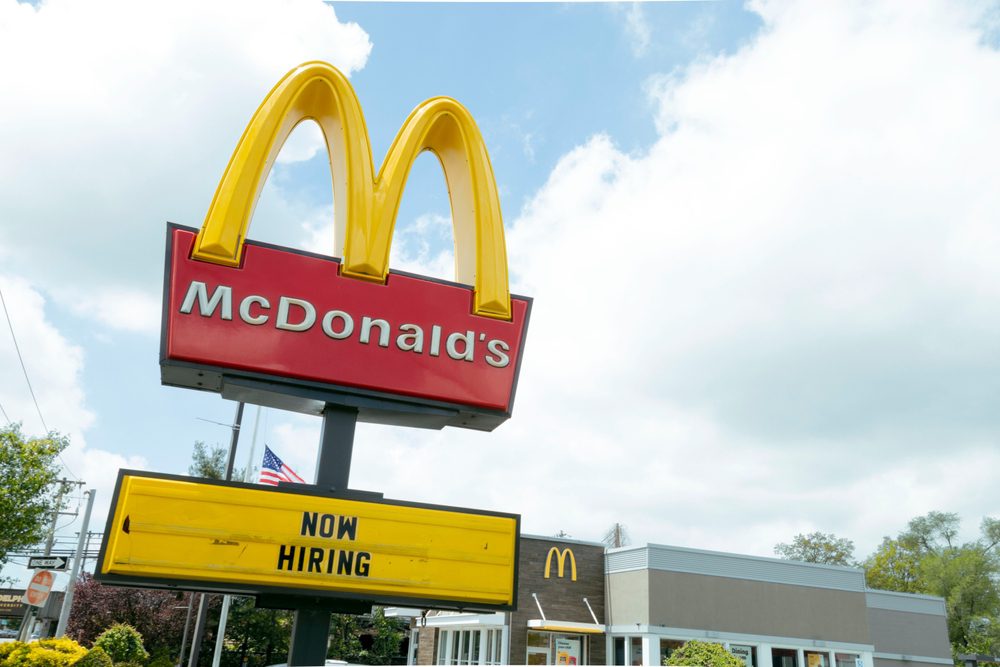When writing about the maturation of various performance marketing verticals for our other piece, a topic came up, the distinction between an affiliate and a company. Several of the biggest networks and most notable success stories from the performance marketing space involve an affiliate/arbitrager or a small team making the leap from individual to company. Doing that comes with its own set of opportunities and challenges. When you are an arbitrager, it’s in some ways akin to being an employee. You focus just on you without having to give too much thought to the other moving pieces. You have the luxury to think about your needs and what you have to do in order to get what you want. Not so when you decide to build out a company. All of a sudden, instead of thinking just about oneself, you’ve gone from business bachelor to business family man. And, like having a real family, it requires a significant adjustment in how you think and more specifically how you plan. The rainy day fund is no longer about a trip or toy, it’s about unexpected emergencies and college.
In business, especially the performance marketing world, if there is one thing anyone who has made the leap will tell you, it’s be prepared. You’re going to deal with some unpleasant issues, and outside of getting in trouble with the law, some of the toughest decisions that you will have to face will involve money. If you operate in the performance marketing world, you will face your own version of the credit crunch at some time, be it a fine (if a legal scenario) but more commonly non-payment. There will be no bigger test of your business and your character when it happens. That shouldn’t stop you from going from single to a business relationship. Here are but a few things that you will need to consider as you do.
- The Float – More and more being a performance marketing company, such as a network, will look more like a commercial lending business than an advertising one. You will get paid from some people and then pay out to others. The first big shock comes from feeling firsthand paying out traffic suppliers before getting paid by the advertisers. It’s easy to approach it with a cavalier attitude and think that you will get paid, and you might. But, you shouldn’t assume that it will be. Extending credit is an art form, and the bigger you get, the more money you will have outstanding at any one point in time.
- Federal Reserve – What do you do when start to make money? Do you go out and spend like there is no tomorrow? Do you do that as a reward to yourself? Because you think money will continue to come in, or perhaps as a way to motivate you? The hardest part about being the family man is not spending it and thinking about the family. You have to think about their needs if the unexpected happens. Speaking of the unexpected…
- Getting Stiffed – At some point in time, you will find yourself paying out money that you can’t correlate to revenue. You will be paying out of profits. Due to the often cavalier nature of the industry, that out-payment can come from a fine, or more common, someone not paying you. And, since you have already paid the traffic providers, you’re left holding the bag. That’s when you’re going to have to dig into the metaphorical penny jar to make up the difference. And, it’s going to suck, because during the good times everyone will want a piece, but when something bad happens, don’t expect employees to want to pitch in.
- What Do You Do – Knowing you will get stiffed, and facing a financial loss are still two very different things. When you get screwed, it will be one of the biggest challenges you face, and you should think ahead of time how you will react. Are you going to not pay your employees? If you are a big spender, you might not have the money to cover payroll. If you don’t take as much risk in the float, you might decide to not pay your partners or to pay them less. What amazes me about the cpa networks is just how much they have had to eat on behalf of their publishers, from fines to non-payments. They continue to stand behind their publishers, who they have paid even when they are left with upwards of a seven-figure deficit. They have placed a value on the relationships and taken a very long-term view. The best of the best even shield their employees and allow them to continue performing without them feeling threatened. I’m sure for many it has meant tapping into debt lines and other forms of uncomfortable leverage.
- The Hidden Costs – Not getting paid what you expect to make has that immediately quantifiable cost, but it also has an equally big emotional cost. You will spend countless hours thinking about the loss one way or another, from fighting it to just plain obsessing. You might even consider legal action, but that could cost as much if not more. You will have to separate yourself from the money. You can’t think about it in personal terms, such as what you could have bought or done with it. That money exists for this exact purpose, to piss away on something absolutely crappy but to ensure you all can still make money in the future. It’s all that more difficult when you didn’t do anything wrong, yet find yourself having to bend over backwards for everyone else. Business family life.
- People Talk – The reality is that our space just isn’t that big. You can screw some of the people some of the time but not all the time. As you think about how you want to handle a potential loss, you have to consider the social implications. You might get away with it once or twice; some people have gotten away with it many times, but it will catch up with you. Social networking tools are only making more transparent who does right by their customers and who doesn’t.
Is there a general industry rule on what to do when you face a financial pinch? That would be nice. A rule I have heard is six months of overhead. So, if you have 200k in monthly overhead, $1.2 million, and were you to have 500k in overhead, you should have three million on hand. The most conservative people will try to keep a year. Easier said than done, especially if you are the owner of the business and looking at that $1 million in terms of the bachelor. Then again, no one said growing up was easy, especially in business.
 Network
Network

